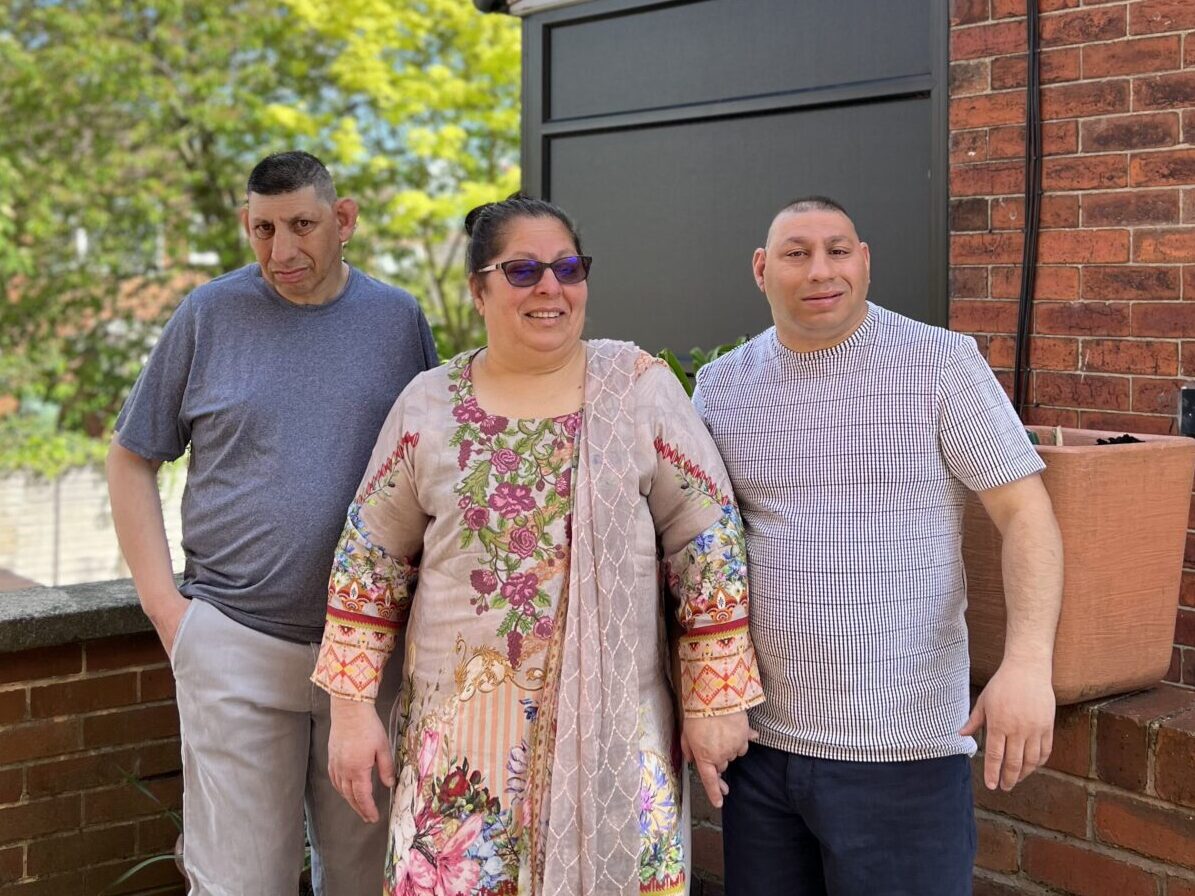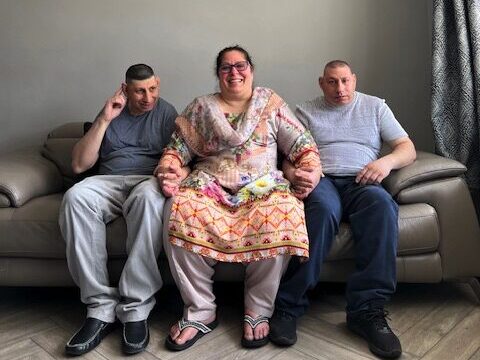At least 1.7 million adults in the UK have grown up with a disabled sibling. They’re more likely to have experienced prejudice, family breakdown, bereavement or financial hardship. Kausar Iqbal shares her experiences with Kate Stevenson

Family is important to everyone, but Kausar’s life has always revolved around hers. Growing up as one of six siblings in a bustling household, she faced responsibility few can understand. Her two younger brothers, Saeed and Irfan, have microcephaly, epilepsy and learning challenges. For most of their lives, she’s been their full-time carer.
FAMILY FIRST
Even as a child, she felt the weight of obligation: “I was only eight when Saeed was born,” she recalls. “To me, he was just my baby brother. But over time, I realised things weren’t the same as other families.” When her next brother was born, she noticed the developmental differences between him and Saeed. “At six, he still couldn’t walk. He was in nappies, and mum was struggling to cope. That’s when I understood my childhood was going to be different.” As the second eldest, her parents turned to her for respite. At 15, her caring responsibilities doubled when her mum was expecting Irfan.
Half of the UK’s young carers are siblings of disabled children who had no choice but to help their parents – just like Kausar.
But acting as a carer while trying to hold onto her own childhood wasn’t easy. “I took them everywhere: to the park, the library, on errands. One in a pram, the other holding onto the side,” she remembers. “I tried to plan it perfectly because I was scared they’d have a tantrum or cause a scene. I was just a child myself, but I didn’t have the option to put myself first.”
Reflecting back, Kausar acknowledges that venturing out with no adult supervision – let alone while caring for two vulnerable children – probably wasn’t wise. “I didn’t know any better,” she admits. “I used to sit my brother up on the wall outside so he could watch us play. I didn’t realise he might get hurt if he had a seizure and fell.”
THE COST OF CARING
Today, Kausar is her brothers’ official carer. First, Saeed moved into her house with her family after he failed to settle in residential care. Then, when her parents were looking to place Irfan in housing, Kausar once again opened her doors, as well as giving up her job as a nursery officer.
It’s an all-consuming role, which she says has taken its toll: “Some days, I feel like I’m running on empty. I’ve developed arthritis, high blood pressure, and sleep apnoea. But there’s no time to stop – not when they need me.”
The financial burden of caregiving is another constant stress, especially when her siblings need adaptations that benefits won’t cover. And beyond these pressures, Kausar struggles with the isolation. “I’ve lost parts of myself. I don’t know how to put makeup on or style my hair because I’ve never had time to learn. Sometimes I wonder, ‘Who am I, beyond being their carer?’.”
TAKING A TOLL
Caring has not only shaped Kausar’s relationship with herself, but the relationship she has with her friends and family too. “I don’t have a traditional bond with my siblings or parents,” she reveals. “Growing up, I had to be the adult. I never had the chance to lean on my mum or dad because they were dealing with their own struggles.”

Kausar tries not to feel aggrieved, but her relationship with her parents – and other siblings – is strained. “There were times I wished they helped more, but we all had our roles. Now, my relationship with my siblings is polite, but I feel the distance… We fell out about my brothers after my dad’s passing, and it’s taken years to rebuild even a basic connection.”
Being a carer for a family member is “a balancing act,” she reveals. Sometimes you get it right, sometimes you don’t – but even Kausar’s children struggled to understand this. “My kids grew up with their uncles in the house. They’re incredibly empathetic, but they’ve also felt like they’ve had to share me,” she explains. “Sometimes they say I put my brothers first, and that breaks my heart.”
FAILING SYSTEM
Looking after her brothers comes with challenges, but Kausar feels happier being in charge of their care. When her eldest brother briefly moved into residential care, it was traumatic. “He was miserable,” she remembers. “We were naive to think the system would care for him like we did.”
After six months, Kausar brought Saeed home. But this wasn’t the only time the system let her down: “I had a hernia operation and was given just two weeks of respite care. By the time my brothers returned, I hadn’t recovered properly and developed an infection. That’s the reality of being a carer: even when you need help, it’s not there.”
The lack of mental health support is another failure. “Carers’ mental health is overlooked,” points out Kausar. “I’ve been carrying this responsibility since I was eight. It’s affected every part of my life, but there’s no one to offload to. I just have to keep going.”
Despite the challenges, Kausar’s devotion to her brothers is unwavering. “They’ve taught me patience, resilience and compassion,” smiles Kausar. “When I’m having a hard day, they’ll come and hug me. That love makes up for so much.”
